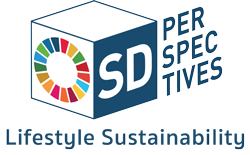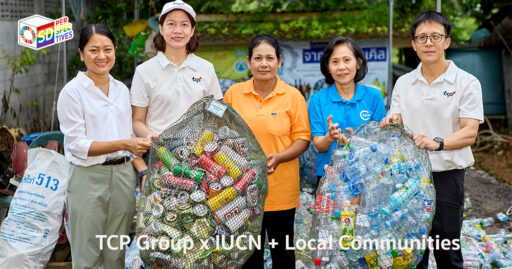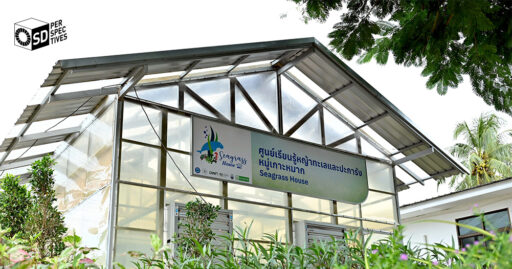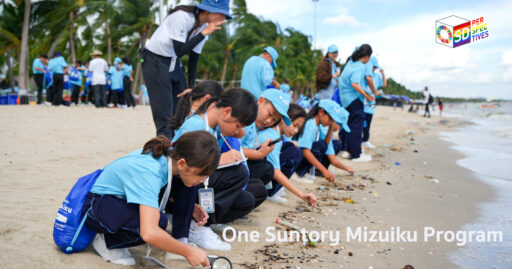June 27, 2025…TCP Group has recently announced the success of its initiative “TCP Energizing Sustainability: Driving the Circular Economy,” underlining its commitment to sustainability in waste management.
In collaboration with the International Union for Conservation of Nature (IUCN), TCP Group has been working between 2022 and 2024 to transform waste management behaviors in the Ngao and Bang Non subdistricts of Ranong province. Central to this initiative is the Extended Producer Responsibility (EPR) model, which holds producers accountable for the entire life cycle of their packaging. The project has laid the groundwork for a municipal waste management law and aims to contribute policy recommendations to the government and relevant stakeholders in support of Thailand’s national circular economy agenda in the long term.
Arjaree Suwangool, Corporate Affairs & Communications Department Director of TCP Group, said,
“The ‘TCP Energizing Sustainability: Driving the Circular Economy’ initiative reflects TCP Group’s commitment to our purpose of ‘Energizing a Better World for All.’ We worked together to develop a comprehensive EPR model for the management of packaging waste, which was subsequently piloted within our organization. Collaborating with IUCN and the local communities gave us a deeper understanding of the challenges. This initiative has also led to measurable changes within communities—both in behavior and in waste management systems—demonstrating that true impact stems from partnerships that create holistic value.”
TCP Group selected Ranong province as a pilot site due to its environmental challenges, coupled with the community’s close ties to natural resources. The project raised awareness about waste separation and encouraged the return of packaging waste to the recycling system. It also empowered the community to be part of the change towards improved hygiene and environmental quality in the area through waste reduction. One of the project’s most significant outcomes was the generation of income for the community via merit funds and waste banks, as well as the development of a municipal waste management law in Ngao subdistrict—marking a meaningful step forward in driving tangible change at grassroots level.
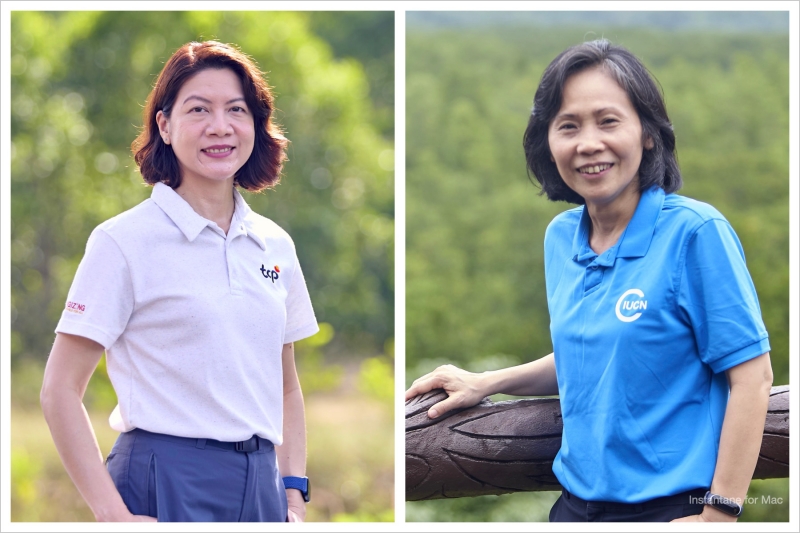
Dr. Phattareeya Suanrattanachai, Head of Thailand Programme IUCN, added,
“As an organization committed to environmental conservation and resource management, IUCN provided technical support throughout the initiative. Its success has shown that when technical knowledge is combined with collaboration across all stakeholders—particularly with dedicated commitment of local communities and strong leadership from TCP Group—change is possible. We believe the participating communities can serve as role models for other areas, whether as mentors or advisors in adapting and scaling this approach effectively.”
Wasana Rodyuan, Head of the Village Health Volunteers in Bang Non Subdistrict, spoke of the transformation in the area,
“Our community now manages its waste effectively. Litter has become increasingly rare as residents have come to recognize the value of waste as a resource. We’re deeply grateful for this project, which reshaped behaviors, created additional income, and improved overall quality of life.”
The project has recovered over 129,193.50 kilograms of recyclable materials from the Ngao and Bang Non subdistricts—generating an economic value of more than THB 490,062.85.
This reflects the strength and efficiency of the newly implemented system. TCP Group will build on this success by adapting learnings into scalable practices for broader applications and share these insights with relevant government agencies to help shape waste management policies aligned with circular economy principles and Thailand’s Net Zero targets.

